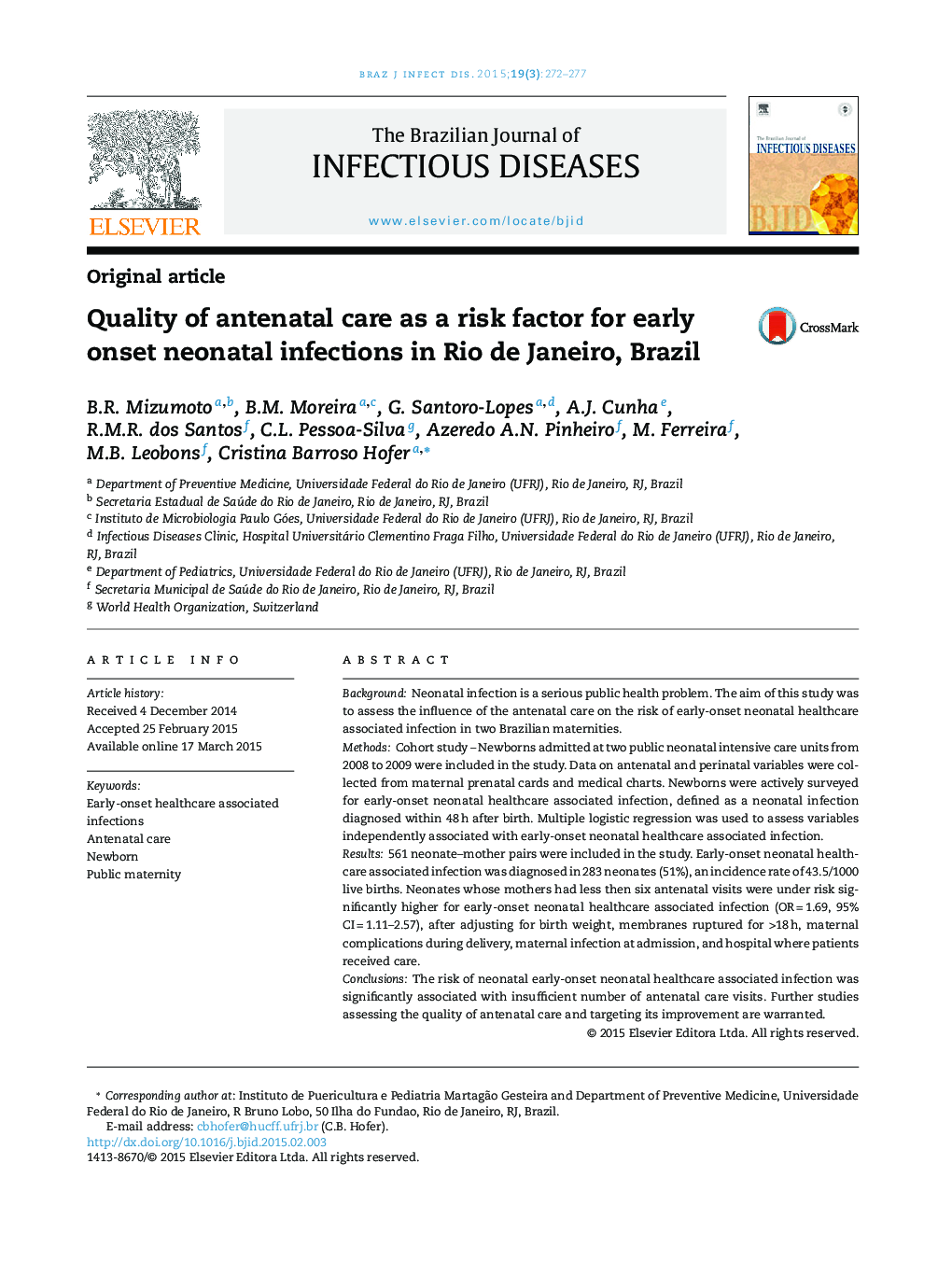| Article ID | Journal | Published Year | Pages | File Type |
|---|---|---|---|---|
| 3343781 | The Brazilian Journal of Infectious Diseases | 2015 | 6 Pages |
BackgroundNeonatal infection is a serious public health problem. The aim of this study was to assess the influence of the antenatal care on the risk of early-onset neonatal healthcare associated infection in two Brazilian maternities.MethodsCohort study – Newborns admitted at two public neonatal intensive care units from 2008 to 2009 were included in the study. Data on antenatal and perinatal variables were collected from maternal prenatal cards and medical charts. Newborns were actively surveyed for early-onset neonatal healthcare associated infection, defined as a neonatal infection diagnosed within 48 h after birth. Multiple logistic regression was used to assess variables independently associated with early-onset neonatal healthcare associated infection.Results561 neonate–mother pairs were included in the study. Early-onset neonatal healthcare associated infection was diagnosed in 283 neonates (51%), an incidence rate of 43.5/1000 live births. Neonates whose mothers had less then six antenatal visits were under risk significantly higher for early-onset neonatal healthcare associated infection (OR = 1.69, 95% CI = 1.11–2.57), after adjusting for birth weight, membranes ruptured for >18 h, maternal complications during delivery, maternal infection at admission, and hospital where patients received care.ConclusionsThe risk of neonatal early-onset neonatal healthcare associated infection was significantly associated with insufficient number of antenatal care visits. Further studies assessing the quality of antenatal care and targeting its improvement are warranted.
